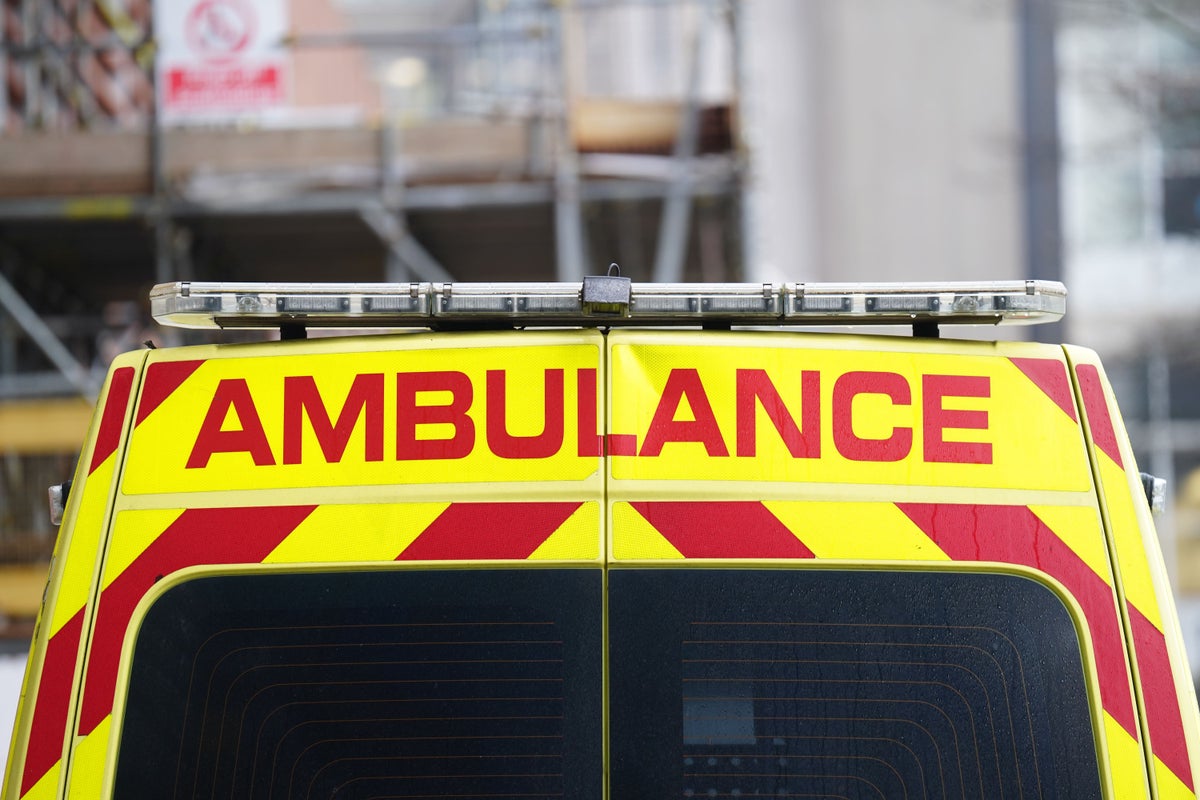
NHS hospitals in England are continuing to see near-record numbers of medically-fit patients unable to be discharged, though ambulance handover delays outside A&Es have improved, figures show.
Health leaders warned that emergency services are facing “alarming levels of stress” and that more beds were “desperately needed”.
The figures come as nurses across England took industrial action for a second consecutive day in an ongoing dispute over pay, with further strikes planned for February.
The NHS advised anyone seriously injured or ill to phone 999, but to call 111 or visit the 111 website for non-urgent care.
An average of 14,036 beds last week were taken up by patients who were fit to leave, down slightly from an all-time high of 14,069 the previous week, according to NHS England.
At this point last year, the number stood at 12,498.
Just 41% of patients ready to leave hospital last week were actually discharged, with the proportion dropping as low as 30% in north-west England and 33% in south-west England.
Hospitals have faced a growing struggle in recent months to discharge people who are well enough to leave, often because there is not enough support in place from local providers of social care.
Delays in freeing up beds have a knock-on effect for admissions, leading to many patients being kept waiting in ambulances before being transferred to A&E teams.
However, there are signs that handover delays may be improving.
A total of 23% of ambulance patients in England waited at least 30 minutes last week to be handed to A&E teams, down from 36% the previous week and the lowest level so far this winter.
The figure hit a record 44% in the week between Christmas and new year.
Some 9% of patients waited more than an hour last week to be handed over to A&E teams – again, the lowest this winter and down from 19% the previous week.
There were 7% waiting more than an hour at this point last year and 18% waiting at least half an hour.
Patricia Marquis, Royal College of Nursing director for England, said the latest data “shows exactly why nurses across the country are standing up for their patients and joining picket lines”.
She continued: “With 14,000 patients stuck in hospitals in England who are medically fit to be discharged but can’t be because of the lack of community and social care – a near record – and hospitals full to bursting, the pressure on health and care shows no sign of waning.
“The 47,000 nursing vacancies in England alone need to be filled and fair pay would boost recruitment and retention. The workforce crisis and nursing being underpaid has made care unsafe.
“The Prime Minister and his ministers need to recognise why nursing staff are standing out in the cold on picket lines. It is time they drop the tired rhetoric, do their jobs and negotiate with nurses.”
Delayed discharge is one of a number of pressures the NHS is facing this winter, along with bed shortages, a fresh wave of Covid-19 infections and the worst flu season for a decade.
Separate figures published on Thursday show the surge in flu cases looks to have peaked at the start of the year, with an average of 3,447 patients in hospital beds in England each day last week, down 37% from the week to January 1.
The number of people in hospital with Covid-19 is also continuing to fall, with 6,299 patients recorded on January 18, down 33% since January 1.
Saffron Cordery, interim chief executive at NHS Providers, the membership organisation for NHS trusts in England, warned that urgent and emergency care services are still experiencing “alarming levels of stress”, adding: “More beds are desperately needed.
“Every day, more than 14,000 medically fit patients cannot leave hospital, given a need to invest more in capacity in social care and community services.
“The £250 million announced by the Government to free up beds is welcome given the urgent need to ease pressures, but this needs to reach the front line without delay.”
Some hospital trusts discharged fewer than one in 10 medically fit patients last week, according to analysis by the PA news agency.
Rates were as low as just 5% at Stockport Foundation Trust, 8% at Liverpool University Hospitals and 9% at both Warrington & Halton Teaching Hospitals and the Northern Care Alliance in Greater Manchester.
Other trusts with very low discharge rates included Doncaster & Bassetlaw Teaching Hospitals (10%), Southport & Ormskirk Hospital (10%), Ashford & St Peter’s Hospitals in Surrey (14%), and Worcestershire Acute Hospitals (14%).
Professor Stephen Powis, NHS national medical director for England, acknowledged the figures show the NHS remains under “significant pressure”, adding: “The NHS has done extensive preparation for this winter – rolling out extra beds, falls services and nationwide 24/7 control centres to track and manage demand.
“The public can also help by using the best services for their condition: 999 in an emergency and otherwise 111 online, and there is still time to get vaccinations if eligible.”







